Why AI Governance?
The rapid development of AI has created a series of governance challenges that need to be tackled. To start with, the development of AI is going to transform future employment and workforce. It is estimated that up to 100 million Chinese will face employment change by 2030, making China the most affected country during this transformation. If not handled well, the potential massive unemployment may threaten social stability at large and thus the rule of Chinese Communist Party.
Second, the AI-led labour market transformation is likely to deepen the already widening socioeconomic inequality not only among individual workers but also countries. The impact is not only domestic but also international and thus requiring a global solution. Many Chinese scholars have taken it for granted that the future AI order will be dominated by the US and China. They argue that given China’s significant role in the future AI order, China needs to work with international society to provide public goods in the field of AI governance. The argument goes, China, as one of the very few if not the only developing countries who are capable of becoming a major AI power, is the “hope” of developing countries, and thus China’s AI innovation is to seek developmental rights for not only itself but also the vast number of developing countries.
AI’s impact on data security and privacy is also notable. Some predatory data collection has seriously violated privacy and individual rights, which requires immediate regulatory actions from states. While many companies rely on AI-enabled solutions to detect and mitigate cyber threats, it also invites unintended security risks. To tackle these issues, the Chinese government has been exploring ways for regulation and supervision.
Furthermore, weaponization of AI has brought complicated security implications and thus led to concerns about its potential impact. Given AI’s military potential, the intensifying great power competitions may escalate the rise of autonomous weapons and robotics. While the character of warfare is transformed from “informatized” to “intelligentized”, issues in relation to weaponization of AI technology needs to be attentively addressed.
Many of the above challenges that brought by the AI is not unique in the Chinese context. Their transnational nature decides that a coordinated collective global response to govern AI has become increasingly important nowadays. In this context, various AI initiatives have been proposed, leading to the rise of nascent global AI order. China is keen to play a key role in this emerging global AI governance. This aspiration lies in the context of the shifting Chinese views toward global governance. China’s “striving for achievement” foreign policy principle in particularly has advocated a proactive approach to contest for leadership at the global arena. Global AI governance is considered as a promising area to pilot China’s norm-maker role, as the new and emerging area may leave more strategic room for China to fill in and realize its leadership credentials.
China’s Goals and Practices
So far, China has made a series of plans and actions to pioneer AI governance. China’s State Council’s AI plan in 2017 spelt out a timeline and goals for AI governance, aiming to “have constructed more comprehensive AI laws and regulations, and an ethical norms and policy system” by 2030.
Following the ambitious plan, China has been actively researching and introducing AI standards and ethics, including New Data Security Law, Personal Information Protection Law, Ethical Norms for New Generation AI, White Paper on AI Standardization, and the Guide to the Building of a National Standard Framework for New Generation AI. With much focus drawn upon AI governance, China has largely—or is on the way to—endorsed the similar AI-related regulations and laws with that in Western democratic societies.
A primary difference, however, is that Chinese regulatory actions mainly focus on non-state actors, while those in the West regulate not only non-state but also state actors. This difference reflects a crucial difference in cultural and political values. Whereas American and European AI policies do not prioritize state interests over individual citizen rights, in China, based on the assumption that collective, national interests—often defined by the state—should prevail individual citizen rights if there is a clash. As such, the state is granted rights to, for example, access “data affecting national security, national economy, people’s livelihood, and public interest” according to its Cyber Security Law. Such different understanding of the relations between individual civil rights and state power underpins value competition over AI governance between China and the West.
In addition to AI ethics, China’s enthusiasm in defining global AI technical standards is a part of its wider efforts in developing and setting standards for emerging technologies. China’s desire for AI sits in the wider context of its pursuit of modern technologies, and it is primarily driven by China’s history, its contemporary domestic political needs and geopolitical competition especially with the US. It is imperative for China to gain influence not only because of technological dominance and economic gain but also national image and reputation.
So far, China has made some progress in developing national AI standards. For example, following Chinese Standardization Administration’s guidance, Information Technology-AI Terminology—designed to define common terms and definitions in the field of AI—was drafted by a group of Chinese research institutions and technology enterprises in 2021. Chinese AI experts have also been directly participating in global arenas to shape global AI standards.
Nonetheless, in the global competition for standard setting, China is yet to achieve its ambition. At the global arena, many Chinese proposals for new technical standards have been rejected at very early stage due to poor quality. Part of this is indeed driven by the state’s rush to get rid of “latecomer” status and move from a norm-taker towards a norm-shaper if not maker.
Challenges Ahead
Indeed, the existing global AI governance architecture has allowed China limited room to realize its leadership ambition—despite being a nascent field. China is excluded from most of the multilateral settings formed by a selective Western-based membership such as G7, Council of Europe and European Commission—not even to mention some newly created initiatives to counter Chinese influence in global AI governance.
Given that the global governance architecture is largely built on Western democratic values and a liberal global order, it has restricted China’s potential in leading global AI governance in many aspects. Take China’s preference for a traditional state-centric, sovereignty-oriented approach towards global governance as an example. This preference is a natural product of China’s domestic political environment. It is embedded with China’s consistent position on the protection of national sovereignty, pointing to a very different direction from what most global AI initiatives are currently developing and thus makes China more difficult to shape—let alone lead—those initiatives.
Moreover, both US and China consider each other increasingly as the main competitor, if not rival. Their geopolitical competition has often overridden the desire for transnational cooperation. To China, the US is the prominent role model for AI innovation. Many of China’s AI plans were indeed made precisely because of the anxiety generated by American AI success. Likewise, American policy discourse often refers China as the US’s “most serious strategic competitor” or “closest competitor”.
While AI is supposed to be more objective and neutral than humankind, competition for AI leadership is not only technological but ideological. From Europe’s “ethics first” approach to the American AI Initiative aiming to develop “AI with American values”, values are implicitly and explicitly embedded in different state approaches to govern the use of AI. As China has a fundamental different understanding about the relations between citizens and states from that in Western societies, competition for AI leadership has now further developed into a “value competition” over AI under the influence of geopolitics.
Various ideology and security-based state-led global AI governance initiatives
already been formed to counter China such as Global Partnership on AI (GPAI) and AI Partnership for Defense. In this context, G20 is almost the only platform that is not only in line with China’s state-centric sovereignty-oriented vision of global governance but also gives China a say. Nonetheless, G20 is a very loose forum or ‘talk shop’ with no institutionalized structure such as secretariat to translate ideas into practice.
Given the limited room in the existing institutions, it would be very difficult for China to realize its ambition of becoming a leader in AI governance, especially when not a few new AI global initiatives are being formed to rival the Chinese approach to global AI governance. The technological confrontation between the US and China has led to a growing focus on national competitiveness and ideological struggle, making an inclusive governance framework difficult to be developed.
This US-China geopolitical competition has also been distracting attention from pressing AI issues that need to be addressed globally. For instance, it has put the most important AI ethics debate—the role and value of human in the AI-enabled world—into shadow. For the future development of AI, the primary focus should be general ethics in human-AI relations rather than ideological values of robots. In spite of all the government ambitious AI strategies, it is imperative to look at ethical challenges that AI poses to humanity. In this regard, an inclusive and effective global AI governance framework is not going to be formed anytime soon.





